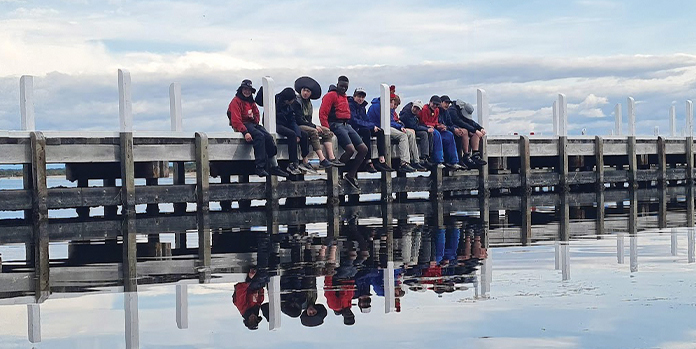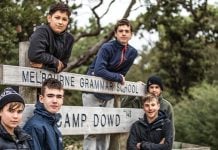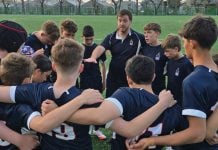This year, Year 8 students in Cuming House blazed a unique trail, participating in a new camp-based experience at Camp Dowd, nestled on the Banksia Peninsula within the Gippsland Lakes region.
Teacher’s Reflection
Experiential learning, or learning by doing, seeks to immerse students in an experience and, by doing so, encourage them to reflect and connect more deeply with the skills, knowledge and issues under investigation.
Furthermore, educational experiences beyond the traditional classroom ask students to step outside their comfort zones, confront new challenges, and build resilience. The diversity in experience can broaden their horizons and contributes to a more well-rounded, holistic education.
The Gippsland Lakes area offered students the chance to connect intimately with the local environment. The scenic landscapes, diverse eco-systems, pristine waters, rich First Nations heritage and historic lakeside towns all contributed to the richness of the program.
The camp was divided into two parts: an immersive experiential learning phase spanning the initial three days and a subsequent six-day expedition.
Tom Bowler, Head of Cuming House
Student’s Reflection
The first day was dedicated to humanitarian learning, delving into the geography and history of the region. We explored the intricate river systems of the area, with a special focus on the impact of the Lakes Entrance opening on marine life in the lakes. A boat ride along the Mitchell River delta further reinforced our understanding.
The second day was all about honing artistic skills. We were introduced to various artistic techniques and later visited a local First Nations art gallery, where we gained insight into First Nations artistry.
The next day was dedicated to crafting a creative project, synthesizing our knowledge of the region into an art piece. It was a day of artistic expression, where we applied the techniques learned earlier.
The experiential phase not only enriched our knowledge but also offered a unique opportunity to connect with nature and history. It provided an important link between classroom learning and real-world experiences.
Following this, we ventured into the six-day expedition, which included activities such as mountain biking, sea kayaking, and a scenic hike. The camp allowed us to break free from our usual routine, offering a chance to learn outdoors, and then immediately apply that knowledge in a hands-on manner.
This camp was a great journey of discovery, merging education with adventure in a picturesque natural setting.
Charlie Kimpton, Year 8



